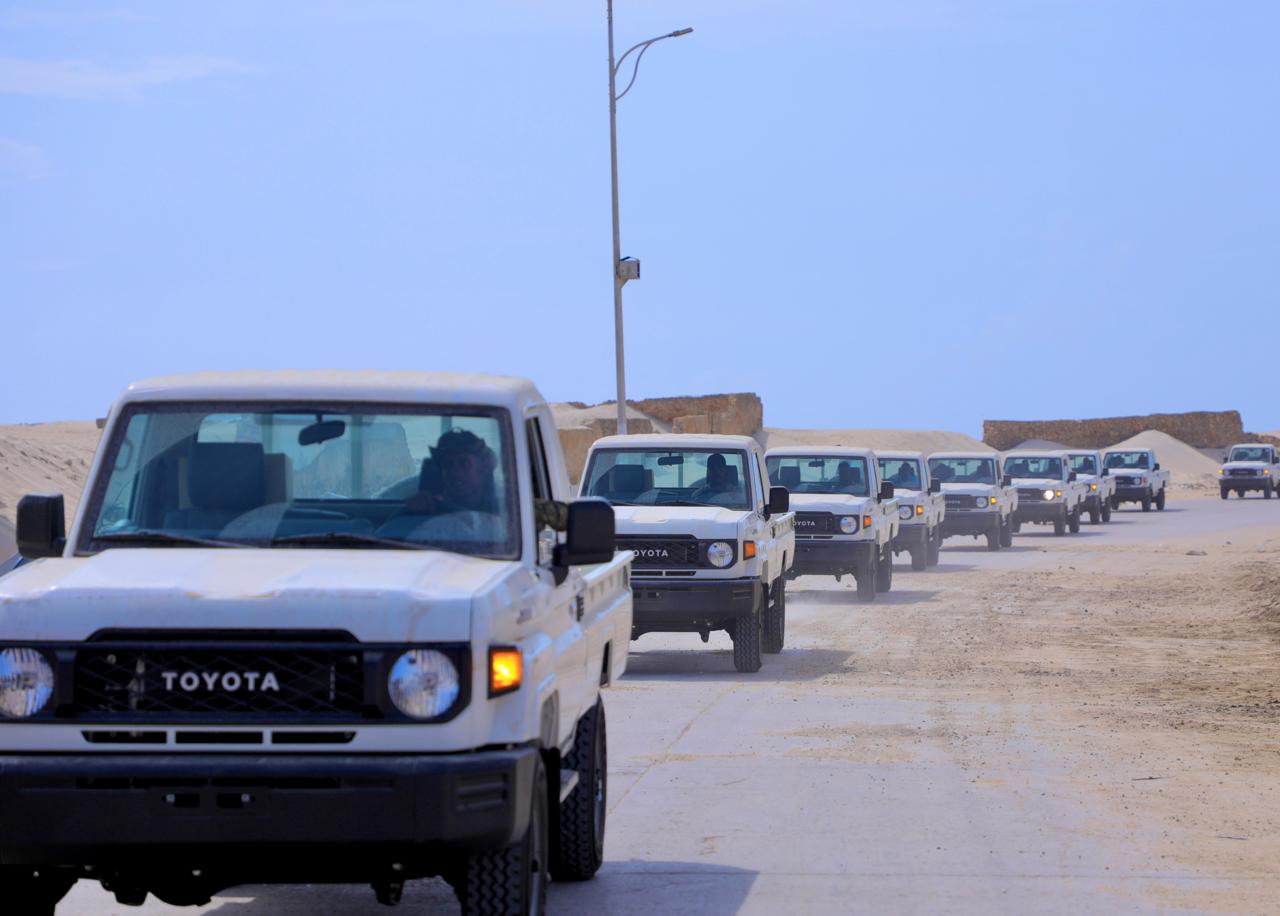Addis Abeba – The National Security Council (NSC) comprised of members of the army and intelligence said the government is determined to root out “extremist political views, organized crimes, and robbery interests” that are “emerging in some areas.”
“The government is doing extensive work to control these activities that are disturbing public peace in both rural and urban areas,” said a statement released by the Council after a meeting held today which was chaired by Prime Minister Abiy Ahmed. “Part of this work is improving law enforcement institutions…and strengthening their coordination and ties with the people.”
The Council’s statement came amidst reports of widespread practices of abduction for ransom and robbery by armed elements in various parts of the country.
The Council said as part of tackling the problem in rural districts and villages, “residents will be properly trained to maintain local peace” as part of the government’s efforts to maintain peace and security. While praising initiatives in some regions, it highlighted that in a country that is “vast and densely populated” like Ethiopia, local militias and other supporting peacekeeping organizational structures play an important role in maintaining peace and order at the local levels.
Regional state police forces are carrying out “their constitutional mandate properly” in coordination with local militias while institution-building reform is underway to enable the Federal Police to fulfill its responsibility of maintaining domestic peace and law. The National Defense Forces is carrying out its duties of maintaining peace and enforcing the law where there is a threat beyond these law enforcement institutions.
The Council credited the existence of this security structure and people’s coordination for foiling forces “that wanted to overthrow the regional government and seize power by force in the Amhara region” and for saving “the state government and the constitutional order.”
Similarly, the Council says in the Oromia region the widespread activities of armed forces and “the tendency to control some districts have been reversed, “while the security and safety situation in the Benishangul Gumuz region has “improved significantly.”
In the capital Addis Abeba and other big cities of the country, security forces thwarted the plans by forces “to carry out various terrorist attacks.”
However, the Council said that peaceful political transition must be deployed as “a tool to achieve other goals,” and highlighted that currently, three policy approaches are being pursued by the government as part of the solutions “to repair and solve Ethiopia’s existing political problems” – the National Dialogue Commission, the Transitional Justice Policy, and the National Rehabilitation Commission (NDC).
The Council emphasized that while the dialogue commission and the transitional justice approaches are key to solving the country’s “existing national problems” there should also be “peaceful political approaches to overcome the challenges of conflict and war,” which highlights the important works of the rehabilitation commission especially in works related to disarmament and reintegration of armed combatants. “In the history of Ethiopia, civil conflicts and wars have occurred repeatedly. We have suffered heavy losses as a country in these wars. The reason for this is that we do not have much political practice in resolving conflicts through dialogue and agreement. What we are used to is building monuments on the graves of our enemies.”
The Council praised the November 2022 Pretoria Agreement between the federal government and the TPLF for contributing to changing this practice and bringing “a culture of ending war through political solutions.”
However, it cautioned that save for the achievements so far achieved “there is still work to be done”, and said, “in particular, the TPLF militants must disarm” according to the agreement. The Council also cited the Pretoria agreement and the country’s Constitution to highlight that there should be “only one Defense Force.” It also said that works that are started to restore and resettle the internally displaced persons “must be completed.” It warning unnamed actors who it said “sometimes even use force to prevent the return of the displaced.”
The Council also warned “not learning from a past mistake is worse than making the initial mistake,” and emphasized on the need to work together to hold “those who continue to create the same problems today” accountable. “We should learn the dire consequences of law enforcement after patience from our recent history.”
The Council admitted that while important works in the area of “law enforcement” were done across many areas in Ethiopia, including welcoming and reintegrating armed militants who wanted to “return from the path of destruction and join the society and lead a peaceful life”, more works remain. It mentioned that “tens of thousands of militants” have surrendered their arms in regions including Benshangul Gumuz, Amhara, and Oromia regions, have received rehabilitation training, and were made to join the community. “We will continue to strengthen this by coordinating with the regions through the Rehabilitation Commission,” it said and called on elders and religious leaders “to support the effort.”
The Council warned that “war bankrupts us all” and that peace benefits all, and called on Ethiopians to “learn from the past, understand our context and the context of our time, and move forward with our vision and agenda.” AS










